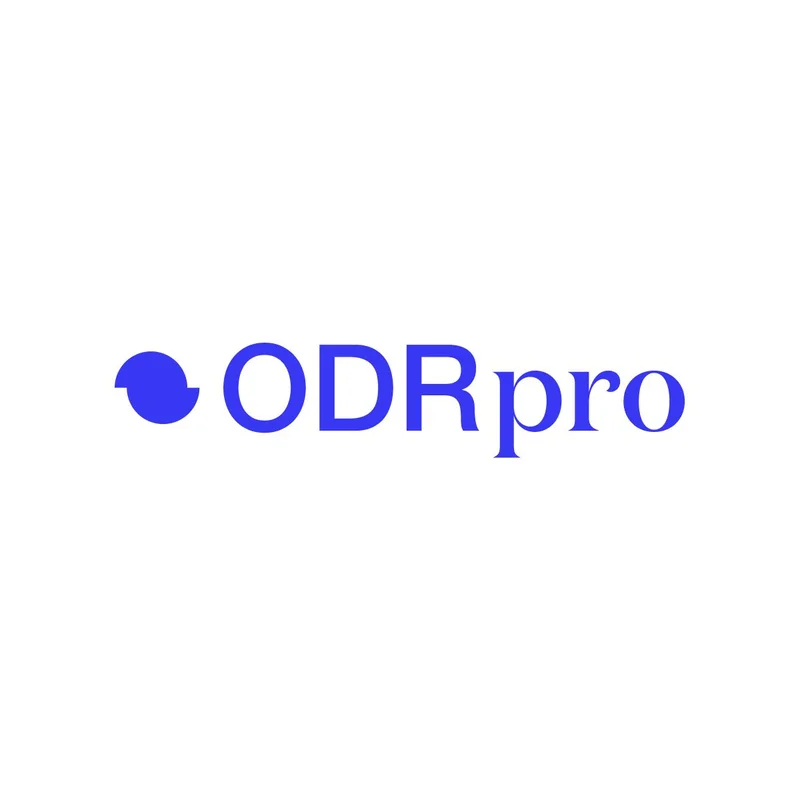Glossary
Terms and explanations around ADR and dispute resolution bodies.
ODR pro: Software for dispute resolution bodies
Digitise your procedures from complaint to resolution — GDPR‑compliant, AI‑ready and ready to use. Features, pricing and references are available on the product page.
A
Acceptance period
Time limit within which a proposal or settlement must be accepted.
Accessibility
Design of procedures and IT so they can be used without barriers (e.g. screen-reader support, clear language).
Admissibility
Formal prerequisites (e.g. prior contact attempt, sufficient information, no parallel court case).
ADR (Alternative Dispute Resolution)
Umbrella term for out-of-court procedures to resolve disputes, e.g. conciliation, mediation or arbitration. The goal is quick, low-cost and mutually agreed solutions.
Amount in dispute
Monetary value of the subject matter; may affect competence or costs.
Application / filing
Receipt of the complaint at the body. From this point, deadlines apply and the limitation period is often suspended.
Arbitration
Private, adjudicative procedure resulting in an arbitral award, which can be enforceable. Distinct from consensus-oriented conciliation.
B
Business / respondent
Opposing party to whom the complaint is addressed.
C
Case closure
Closure without agreement (e.g. inadmissibility, withdrawal, no success) or with agreement/acceptance of the proposal.
Case management
Managing the workflow inside the body – including assignment, status, escalation and controlling.
Chronology
Time-ordered record of all key steps and events in the case file.
Collective case
Bundling of comparable cases (e.g. many complaints about the same event) for efficient handling.
Competence / jurisdiction
Check whether the body is materially, locally and personally competent for the case.
Complainant (consumer)
Person who files the application with the body.
Conciliation
Structured, open-ended procedure in which a neutral leads the parties to an agreement or makes a proposal.
Conciliator
Neutral, independent person at the body who conducts the procedure and may issue a proposal.
Confidentiality
Case contents are generally not public; disclosure only where permitted by law or agreement.
Consumer dispute resolution body
Officially recognised body that settles disputes between consumers and businesses out of court. Must act independently, impartially and with expertise.
Costs / fees
Rules on whether and at what level fees apply. Many consumer ADR schemes are free for consumers.
D
Data protection (GDPR)
Legal framework for processing personal data in the procedure – including legal bases, data subject rights and security.
Deadlines / time‑limit management
Time limits for statements, accepting proposals or submitting documents; digitally managed for scheduling and escalation.
Digital case file
Central, secure repository for all case data, documents and communication.
Dispute resolution procedure
The entire process from filing through statements to agreement or proposal. Governed by the body's rules of procedure.
F
File number / docket number
Unique identifier of a case used for tracking and reference.
M
Mediation
Voluntary, structured procedure in which a mediator facilitates communication; unlike conciliation, no own solution is proposed.
N
Neutrality & independence
Core principles: the body and its staff must not represent either party's interests.
O
ODR (Online Dispute Resolution)
ADR conducted digitally. Refers generally to procedures run online. Many bodies now operate fully digital processes.
Ombudsman / Ombuds office
Independent dispute resolution or complaints office, often in regulated sectors, working toward fair, out-of-court outcomes.
P
Power of attorney / representative
Authorisation for a person to represent or assist a party; proof may be required.
Proof of service / delivery
Evidence that documents/decisions reached the parties (digital or postal).
Q
Quality criteria
Minimum standards for recognised bodies (e.g. independence, transparency, expertise, timely handling).
R
Rules of procedure
The body's rulebook for the process (deadlines, communication, data use, costs, rights and obligations).
S
Sector-specific dispute resolution body
Specialist body (e.g. energy, transport, telecommunications) that is competent only for its sector.
Settlement / agreement
Mutually agreed resolution between the parties that ends the procedure.
Settlement proposal
Solution proposal worked out by the body. Parties may accept or reject it within a time limit.
Settlement rate
Metric showing the share of procedures ended by agreement relative to all closed procedures.
Statement / submission
Written statements by the parties on the facts or on the proposal.
Stay / suspension
Temporarily pausing the procedure, e.g. during settlement talks or external clarifications.
Suspension of limitation period
The claim typically does not continue to run while the procedure is pending; details depend on law and the rules of procedure.
